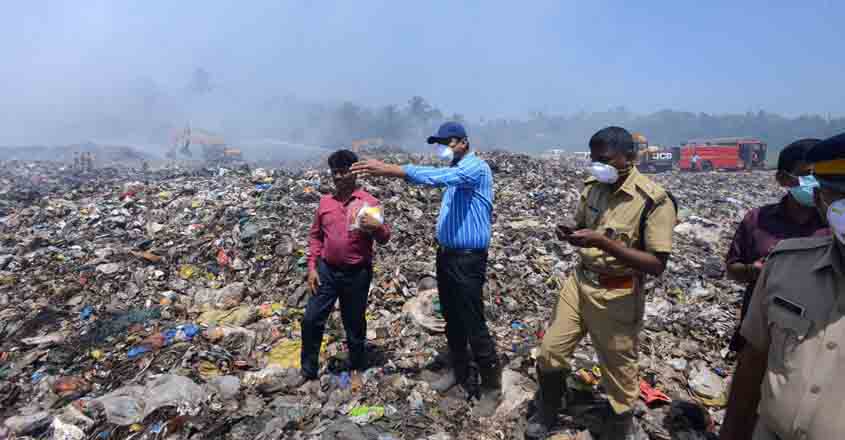The waste bins in Thiruvananthapuram are in a non-functional state. One department is blaming the other for the problem.
The health department is putting it off to the engineering department for the abysmal state of the Thumboormuzhy bins.
Ever since the pandemic started, the waste management system has deteriorated to another low level and this has sent an invitation to a lot of communicable diseases in the capital city of Kerala.
Most of the aerobic bins set for a proper waste management system in the capital are in a dilapidated condition paralyzing the whole waste management structure there.
The aim was to manage the solid waste as part of the decentralized project which became inefficient because of this condition.

The separation of wastage into dry and solid waste has stopped due to the pandemic. It is to be noted that Thumboormuzhy aerobic bins in around 20 places out of the total 43 locations need an emergency repair.
According to The New Indian Express, on an everyday basis, Kerala produces around 353 tonnes of waste.
A senior official of the health department said, “We are responsible for the management of waste generated in the city. Routine maintenance and installation of aerobic bins should be done by the engineering wing. Unfortunately, we are not getting any support from the engineering wing.
Even if we report maintenance work, they don’t address the issue immediately. By the time they address them, more aerobic bins would be needing maintenance. We have taken up this issue with the mayor and the standing committee. We want the maintenance work to be done within a week of reporting.”

In January 2021, The Hindu reported the exasperation of the Principal Bench of National Green Tribunal (NGT) over the inability of Kerala to follow the Solid Waste Management Rules, 2016, even after so many directions since the past two years.
The Bench comprised of Adarsh Kumar Goel, Chairperson, S.K. Singh, judicial member, and Nagin Nanda, expert member and it stated “There is thus a clear governance deficit which needs to be urgently remedied at the appropriate highest level in the State. There is failure to enforce environmental laws.”
Moreover, it added, “There is no meaningful action for complying with the Solid Waste Management Rules, 2016 (SWM Rules) and handling of solid waste in spite of repeated directions in the last two years.”
Amidst all these waste crises, however, Jameela Sreedharan, Health standing committee chairperson said that things are getting better. The pandemic had really made it difficult to treat the waste but she said that dry waste management has started again.
“We have started removing accumulated dry waste and soon a household-level collection of dry waste will begin,” said Sreedharan.
There is still a long way to go however in fixing the system because complaints from many wards are still continuing.
Waste is getting dumped on roads and water bodies because of the lack of Thumboormuzhy bins. Jameela agreed that the disposal of waste in water bodies and other places is very prevalent and it’s done by illegal means mostly.

“This is being done by illegal service providers who collect waste from households after collecting a service fee. We have initiated steps to curb such illegal activities by enforcing source-level waste management.
The service providers would offer support to the residents for managing the kitchen bins provided by us for source-level waste management,” she added.
















